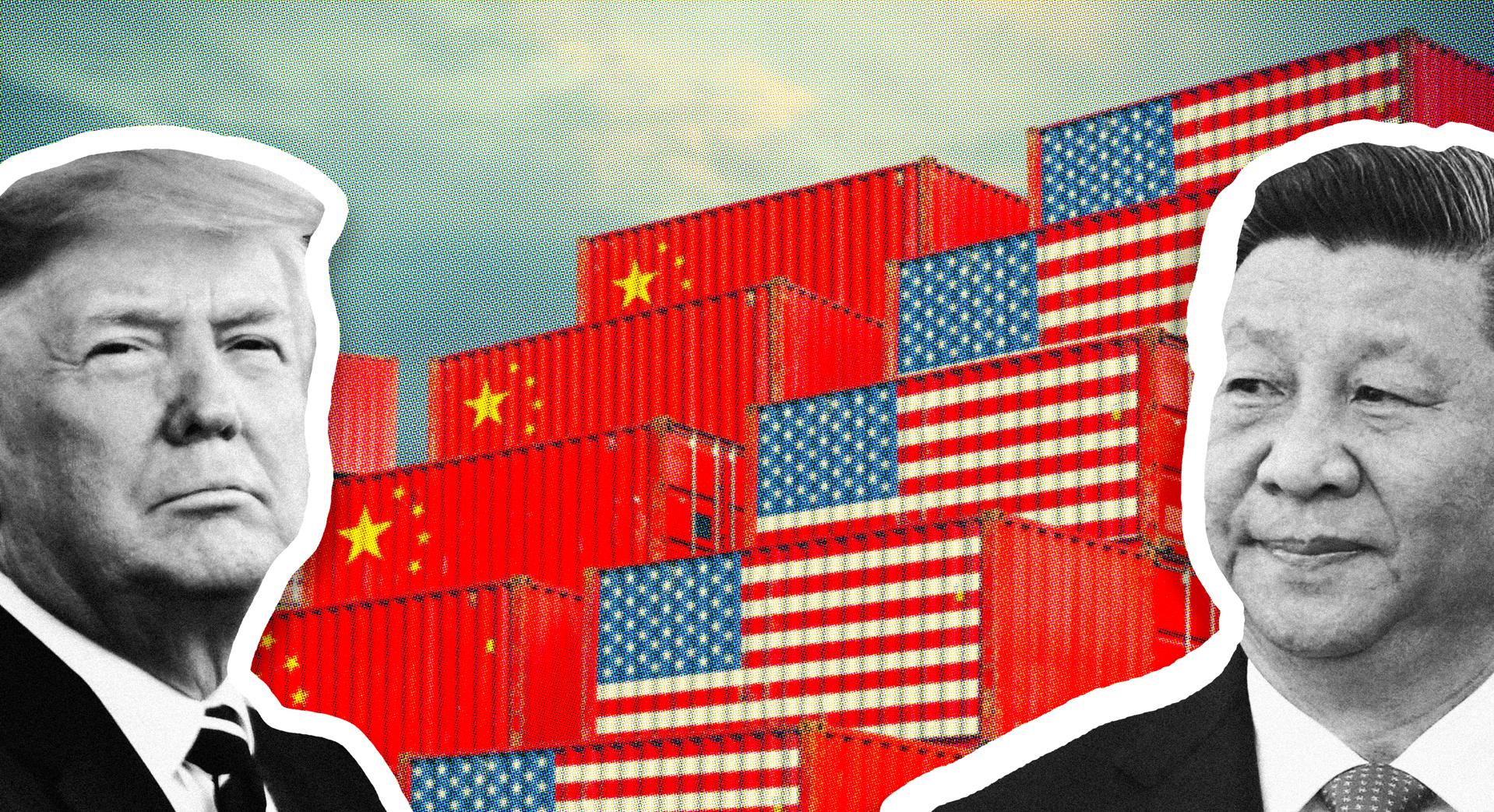The Trump Administration's Influence On European AI Policy

Table of Contents
Trade Disputes and the Acceleration of European AI Sovereignty
The Trump administration's imposition of tariffs and trade restrictions on various goods created a climate of uncertainty and fueled concerns in Europe about technological dependence on the US. This anxiety acted as a catalyst for the push for "AI sovereignty" within the European Union (EU). The concept of AI sovereignty aims to foster independent AI development within Europe, reduce reliance on US technology, and bolster the EU's competitive position in the global AI market. This drive for independence spurred several key actions:
- Increased investment in domestic AI research: The EU significantly increased funding for European AI research projects, aiming to cultivate homegrown talent and innovation. This included substantial investment in both fundamental research and applied AI development.
- Strengthening data protection laws: The existing General Data Protection Regulation (GDPR) became a cornerstone of the EU's AI strategy. The focus on robust data protection, while initially seen as a hurdle for some, became a strategic advantage, positioning the EU as a global leader in data privacy and security.
- Development of European AI standards: The EU initiated projects to develop its own AI standards, aiming to create interoperable systems and reduce reliance on US-dominated platforms and technologies. This involved creating ethical guidelines and promoting the development of open-source AI technologies.
- Data localization initiatives: Concerns about data security and transatlantic data flows led to increased support for data localization strategies, encouraging the processing of sensitive data within the EU.
Impact on Data Privacy and Cross-Border Data Flows
The Trump administration's skepticism toward the GDPR and its eventual invalidation of the Privacy Shield agreement significantly hampered transatlantic data flows. This decision directly impacted the collaboration between European and American companies, hindering the free exchange of data necessary for AI research and development.
- Strengthened GDPR enforcement: The EU responded by strengthening the enforcement of the GDPR, sending a clear message about its commitment to data privacy. This further solidified the EU’s position as a global leader in data protection, shaping the global discussion around data privacy regulations.
- Impact on transatlantic research: The limitations on data transfer forced European researchers to seek alternative collaborations and data sources, potentially slowing down some joint research projects and fostering the development of data-centric approaches that prioritized privacy by design.
- Search for alternative data sharing mechanisms: The EU actively sought alternative mechanisms for facilitating secure transatlantic data flows, emphasizing the need for robust legal frameworks that guaranteed data protection while enabling international collaboration.
Differing Approaches to AI Regulation and Ethical Considerations
The Trump administration's relatively laissez-faire approach to AI regulation contrasted sharply with the EU’s proactive stance, leading to a significant divergence in regulatory frameworks. The EU’s emphasis on ethical considerations in AI development, including addressing algorithmic bias and ensuring transparency and accountability, gained momentum in response to perceived shortcomings in the US approach.
- The EU AI Act: The development of the EU AI Act, a landmark piece of legislation, reflects this proactive approach. This Act aims to regulate AI systems based on their risk levels, ensuring that high-risk AI applications undergo stringent safety and ethical assessments.
- Emphasis on algorithmic transparency: The EU's focus on algorithmic transparency aims to increase accountability and make it easier to identify and address potential biases embedded in AI systems.
- Regulatory divergence and its implications: The differences in regulatory approaches between the EU and the US are likely to have long-term implications for technological competition and transatlantic cooperation in the field of AI.
Strategic Responses and the Strengthening of EU-Asia Partnerships
The Trump administration's policies pushed the EU to seek stronger technological partnerships with countries like China and Japan to diversify its technology sources and reduce dependence on the US. This led to increased collaboration in AI research and development projects, potentially altering the global landscape of AI innovation.
- EU-China relations in AI: While fraught with complexities, the EU’s engagement with China in AI involved increased collaborations in certain areas, such as research and development, with a simultaneous focus on mitigating potential risks related to data security and intellectual property.
- EU-Japan collaborations: The EU also actively sought partnerships with Japan, a country known for its robust technological expertise and commitment to ethical AI development. This collaboration helped to diversify the EU’s technological alliances.
- Geopolitical implications of new alliances: The shift in the EU's strategic partnerships has geopolitical implications, potentially reshaping the global power dynamics in the AI sector and influencing the future development and deployment of artificial intelligence technologies.
Conclusion
The Trump administration's policies, characterized by trade protectionism and contrasting approaches to data privacy and AI regulation, profoundly influenced the trajectory of European AI policy. The resulting push for AI sovereignty, strengthened data protection regulations (like the GDPR), and a proactive approach to ethical AI development represent a significant shift in the global technological landscape. Understanding the Trump administration’s impact on European AI policy is crucial for navigating the complexities of the evolving global AI landscape. Further research into the long-term consequences of this influence is vital for shaping effective strategies for responsible AI development and deployment, both within Europe and internationally. Continue exploring the intricacies of European AI policy and its relationship with global power dynamics, particularly in light of the ongoing competition and cooperation in the field of artificial intelligence.

Featured Posts
-
 The Trump Administrations Influence On European Ai Policy
Apr 26, 2025
The Trump Administrations Influence On European Ai Policy
Apr 26, 2025 -
 Stock Market Valuations Bof As Argument For Investor Calm
Apr 26, 2025
Stock Market Valuations Bof As Argument For Investor Calm
Apr 26, 2025 -
 Economic Uncertainty Trumps Impact On The Next Fed Chairs Agenda
Apr 26, 2025
Economic Uncertainty Trumps Impact On The Next Fed Chairs Agenda
Apr 26, 2025 -
 Abb Vie Abbv Raises Profit Outlook Strong Sales From Newer Drugs
Apr 26, 2025
Abb Vie Abbv Raises Profit Outlook Strong Sales From Newer Drugs
Apr 26, 2025 -
 Green Bay To Host Electrifying Nfl Draft First Round On Thursday
Apr 26, 2025
Green Bay To Host Electrifying Nfl Draft First Round On Thursday
Apr 26, 2025
